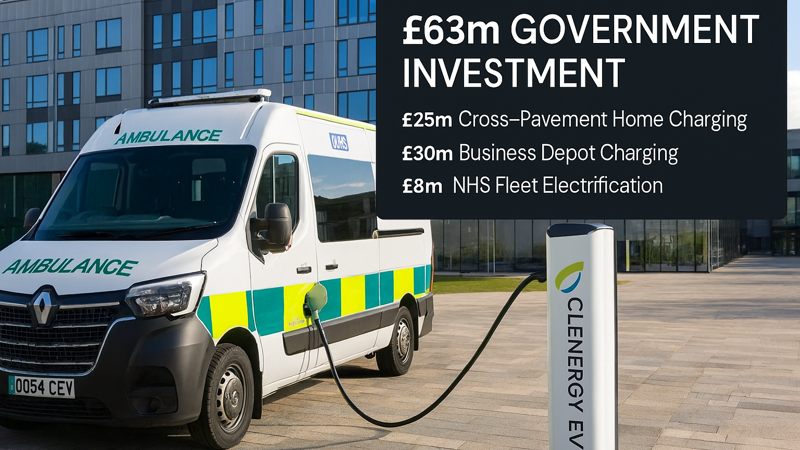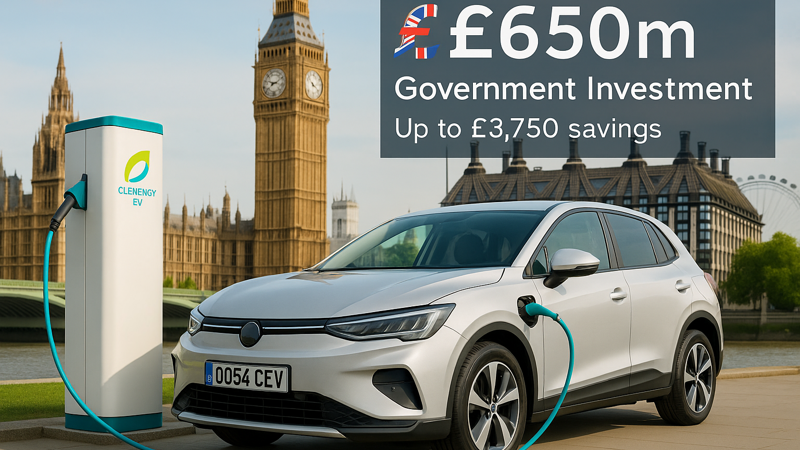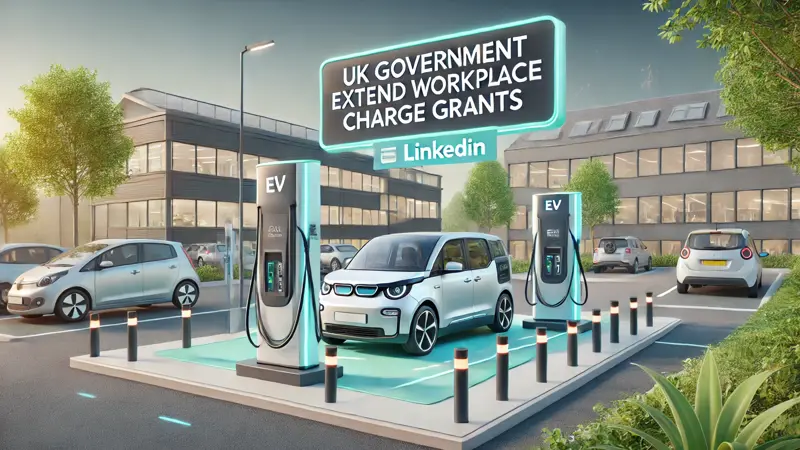
EV News Round-Up: How To Avoid Providing 'Free' EV Charging
£2bn Net Zero Investment: UK EV Battery Strategy Announced
The UK government has launched its first electric vehicle (EV) battery strategy as part of an advanced manufacturing plan, allocating £2bn in funding for the sector over the next five years until 2030.
Overall, the new strategy aims to develop a globally competitive battery supply chain to support the transition to a net-zero economy by 2030, with some of the funding already contributed to Nissan's commitment to build three fully-electric models and a new gigafactory at its Sunderland plant.
Coming in the wake of the Government's previous U-Turn on a 2030 new ICE vehicle sale ban, top voices in the industry are citing the effort to increase clarification on what our stages of EV transition will look like, and how we are going to facilitate it, as a step in the right direction:
“The Government’s advanced manufacturing plan sets out measures to support the UK automotive supply chain as it undergoes the most significant transition in its history.”
“The plan, together with a new battery strategy to support the development and production of this critical technology, is essential if the UK is to compete in the face of fierce global competition,” explained the chief executive of the Society of Motor Manufacturers and Traders (SMMT), Michael Hawes.
Cases of Range Anxiety Halves, as Home Charging Proves Vital
According to a recent report by Ev.energy, 58% of EV drivers surveyed stated that they were no longer affected by range anxiety or worried about whether their vehicles will be able to handle journeys over longer distances.
On top of this statistic, 77% of drivers cited having never run into issues when looking to take their EVs on long distance journeys.
Some of the key reasons for this reduction cited in the report are increased access to home chargers, and battery developments that make for longer-life chargers.
This turning tide however is an achievement that can be attributed to the EV industry as a whole, however, as sectors merged to tackle one of the most widely reported reasons for dissatisfaction among drivers.
With a collective approach combining software features like journey planning and the availability of charge points with battery developments and grants facilitating home charge point installation, this reduction shows that the industry’s strategy in targeting range anxiety appears to be working.
How to Keep Your Workplace Chargers Live
Earlier last week, Fleet News reported on some key considerations for your workplace EV chargers.
These included the use of smart charging software to manage grid strain, having maintenance teams on hand, and making sure your network has automatic alerts to tell you when things aren’t working the way they should.
All of this can be covered by a good EV software partner.
Using top-end EV charging software providers, you benefit from built-in load balancing capabilities, remote maintenance alerts and even ‘one-click fix’ capabilities, which limit the amount of work and site visits that maintenance teams are required to do to get potentially malfunctioning chargers back online.
When speaking to customers maintaining a charging network, we’ve found that maintaining chargers remains important not only in ensuring a positive reception to your fleet transition from drivers reliant on your network, but also for organisations looking to open their charge points to the general public during low-usage periods.
In order to do this, organisations need to make sure that they’re meeting rigid Government guidelines recently introduced, which mandate a 99% reliability rate for charge points. We cover the opportunity for charge point operators in opening their network to the public here.
Drivers Urged to Make EV Switch Amidst Fuel Price Warning
A recent GB News article outlined the necessity for drivers to remain cautious regarding dropping fuel prices.
This comes after recent intervention from the CMA (Competition and Markets Authority) helped tackle profiteering from retail chains, to make way for a drop in oil prices as driver’s needs were re-prioritised.
In the 31 days between October 8 and November 8, prices fell by just 3.5p per litre. In comparison, it took just 14 days for prices to drop by 3.75p after the CMA report.
But at a time where EV drivers can benefit from free EV charging for a year, and a range of extra cheap off-peak charging tariffs on home chargers, advice warns that the root causes of petrol and diesel inflation are far from resolved.
On top of the relative stability of EV charging tariffs, the EV market is also already undergoing this level of regulation as our infrastructure grows. This comes as the CMA released a warning to network operators last week notifying its intention to clamp down on long-term contracts at charging locations such as motorway service stations, as a violation of the Competition Act of 1998.
We covered what the latest warning under the Competition Act means for the EV industry in our latest article here.
Error Provides Drivers With £148,000 ‘Free’ EV Charging
Recently, Woking Borough Council made the news after having inadvertently provided an estimated £148,000 EV charging for free to drivers on the public network, due to an IT error.
Not the first instance of its kind however, the unfortunate situation is not entirely the fault of the organisation. Many local authorities and public sector organisations have been left to facilitate an EV transition in line with Government net zero targets, without necessarily having the internal resources or technical knowledge to ensure a successful rollout.
One key way to combat instances like this could be by making sure to partner with an industry-trusted software provider to back up its charge points upon installation.
Smart EV software lets you open and close chargers on your network for public use, while giving you the ability to set different tariff rates for the general public to organisation members charging on the job.
As we move into a fast-emerging industry, it’s essential that we collaborate to make sure our EV charging rollout is successful. Making use of established industry experts to help facilitate your network rollout can play a key part in this.
That concludes the latest edition of our EV news round-up. If you’re interested in learning more about the UK’s EV charging rollout, and how EV charging software can help in our collective transition in line with the net zero transport push, make sure to head through to our blogs and news sections to learn more on the subject.
Alternatively, you can fill out the form below to get in touch with our team, who can provide a low-commitment demonstration of what our smart charging software can do for you.


